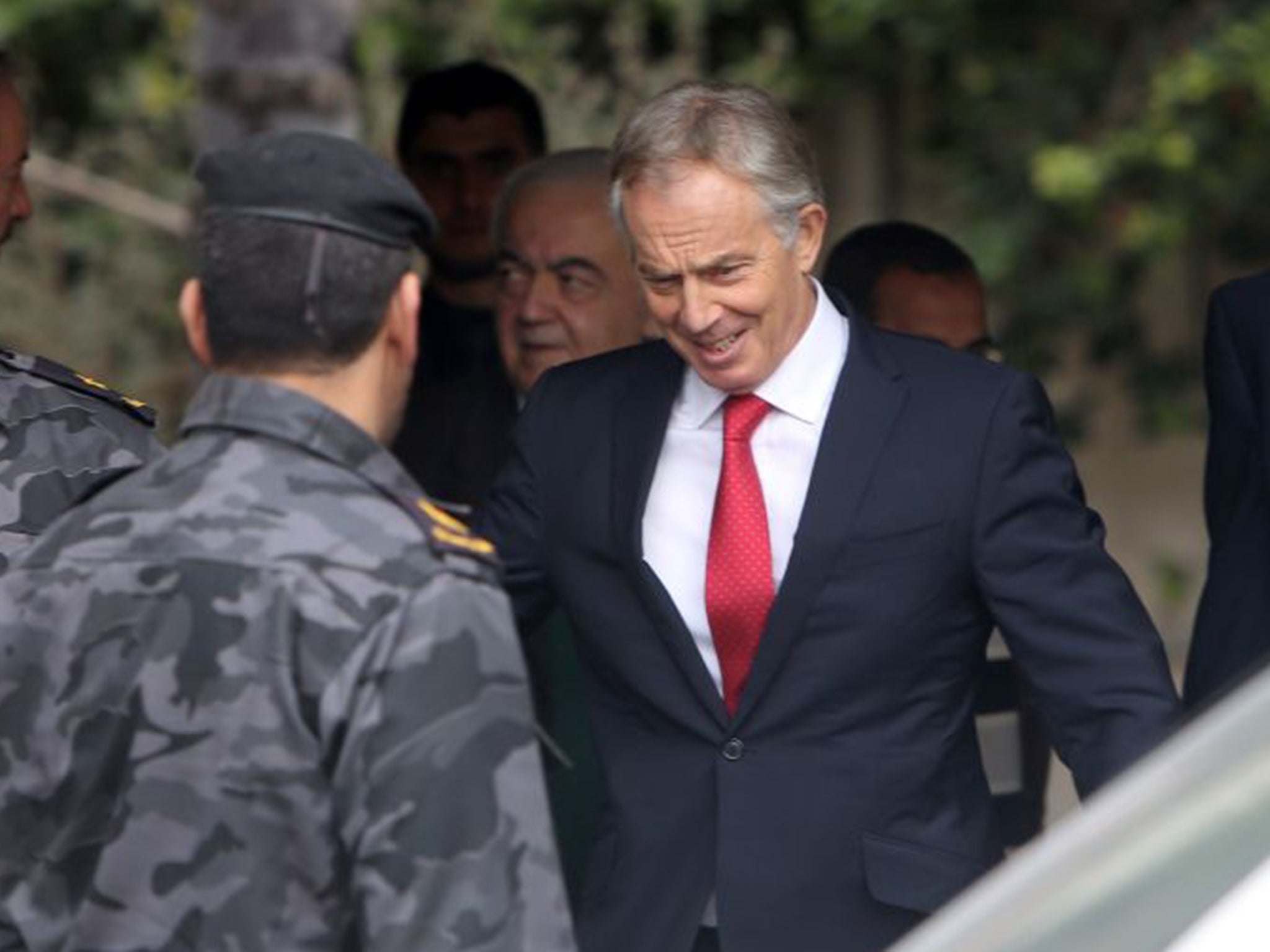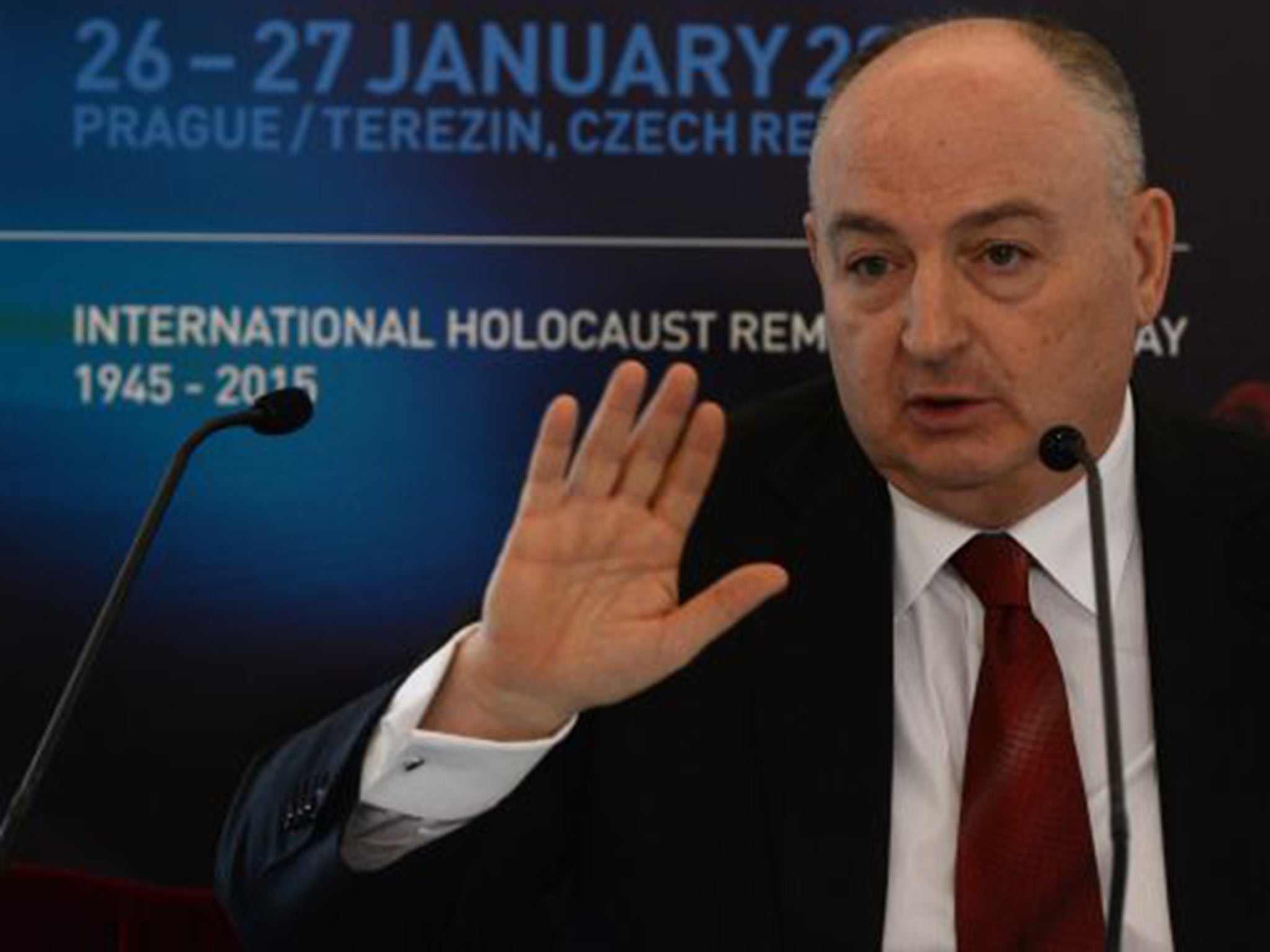Palestinians baffled by decision to appoint Tony Blair to chair European Council on Tolerance and Reconciliation
Tony Blair has a new job – but his Middle East failures are not forgotten

Tony Blair’s globetrotting brand of peace has taken another unexpected step. In Jerusalem, where he kept an office as impartial envoy to Arab states for the Quartet, there was bafflement at his decision to become head of Europe’s pro-Jewish body fighting anti-Semitism.
Mr Blair’s appointment to chair the European Council on Tolerance and Reconciliation (ECTR), which campaigns for tougher laws on extremism, even caused some concern among Palestinians. The region Mr Blair left behind when he stepped down as the Quartet’s Middle East envoy appeared wary about his new, reportedly unpaid, appointment. “He couldn’t do much to achieve Palestinian rights,” said PLO advisor Xavier Abu Eid. “If I were a European Jew I would be very concerned about what he could achieve for me.”
The Palestinian camp largely greeted his arrival eight years ago with optimism as he took up offices in East Jerusalem, but his tenure was marked by a stalled peace process and, later, accusations of pro-Israeli bias. “When he was appointed I thought, as a former UK Prime Minister, he had not come to play [around] … but he became irrelevant,” Mr Abu Eid added. Mr Blair’s role became to campaign for the Israelis, Mr Abu Eid told The Independent, noting his praise of Ariel Sharon at the former Israeli Prime Minister’s funeral last year.
But Mr Abu Eid, like other Palestinian commentators, was quick to note that Mr Blair’s choice should not be tied to his post as Middle East peace envoy. “The fact that there is anti-Semitism and it should be fought is a reality, like Islamophobia should be fought, and [this new job] has nothing to do with his role [as Quartet envoy],” he said.
The ECTR was established by Moshe Kantor, President of the European Jewish Congress, and campaigns for tougher laws on extremism and racism including the criminalisation of Holocaust denial. Ghassan Khatib, a Palestinian politician and veteran of several rounds of peace talks, said he was reserving judgement on Mr Blair’s role at the ECTR. “As Palestinians we do not have any interest in the increase of anti-Semitism, in fact we pay a price for anti-Semitism … We are anti-Israeli occupation, not anti-Jewish.”
Mr Khatib argues that the former Prime Minister himself may have been fair-minded, but that the Quartet “is biased [in favour of Israel] … and a failure story … but it is not fair to hold him responsible for that”.
Former Israeli negotiator Yossi Alpher said he thought Mr Blair’s new chairmanship might add fuel to the fire for some of his critics. “It will probably reconfirm in the eyes of many Palestinians what they had always argued: that he was biased in favour of Israel.”
Mr Alpher has been critical of Mr Blair’s mission for different reasons, saying the Quartet’s focus on boosting the Palestinian economy and infrastructure is a flawed path to peace.
But Gilead Sher, head of Israel’s negotiating team at the 2000 Camp David summit, said these efforts “to create a reality that allows people on both sides of the trench to live more comfortably” were valuable. He called Mr Blair very capable and devoted to “making life here more peaceful and creating an environment of coexistence that would be bearable”. Mr Sher also said any suggestion that the former Prime Minister’s placement suggests favouritism towards Israel or Jews is groundless.

Profile: The latest tycoon to hire Blair
Tony Blair’s partner fighting anti-Semitism is Viatcheslav Moshe Kantor, a Russian-born self-made billionaire who built his fortune from fertiliser and real estate.
The 61-year-old is worth $2.4bn, making him the 810th richest person in the world. He is married with four sons and a daughter and lives in London. Mr Kantor heads the Acron Group, which was a state-owned company under the former Soviet Union and is now one of the world’s biggest fertiliser producers.
As president of the European Jewish Congress, Mr Kantor is known for campaigning against anti-Semitism, racism and neo-Nazism. His website says he is “actively engaged in promoting tolerance and reconciliation in Europe”. He is also concerned by the spread of nuclear weapons. In 2007, he founded the International Luxembourg Forum on Preventing Nuclear Catastrophe, designed to bring together experts on nuclear non-proliferation.
On a brighter note, he is president of the Museum of Avant-Garde Mastery in Moscow, which holds the world’s largest collection of Russian avant-garde art.
Ian Johnston
Join our commenting forum
Join thought-provoking conversations, follow other Independent readers and see their replies
Comments
Bookmark popover
Removed from bookmarks